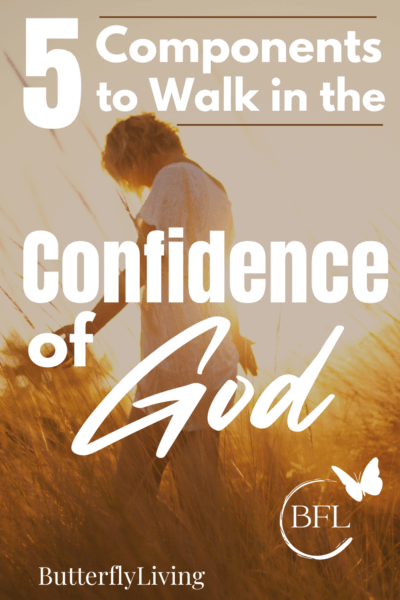
How to be confident without being arrogant? What’s the trick to being self-assured yet humble? How do we squash insecurities and yet not present ourselves as arrogant?
Is there a scale that tips when our pride turns excessive, warning us to settle down? Is it even humanly possible to be confident and not overconfident simultaneously?
Life seems to be a lot of ‘give and take’ – a balancing act. And exuding confidence without being arrogant is a perfect example of the ‘juggle and the struggle’.
Johnny Cash said it best in his chart-topping song, “I Walk the Line.” He knew all too well the existence of a proverbial line separating morality and immorality.
Cash wrote this song to proclaim his fidelity to his first wife, Vivian Liberto. Ironically, one year later, he met a temptation that made him forget about the line drawn in the sand. Her name was June Carter. And we know how the story ended.
It’s easy to stray from our morals from time to time. So how do we stay the course when it comes to the line between confidence and arrogance?
Can we learn how to be confident without being arrogant? First, let’s define confidence.
What is Confidence?
According to the Merriam-Webster dictionary, confidence is “a feeling or consciousness of one’s powers or of reliance on one’s circumstances.”
When we dissect this a bit, we should ask ourselves who the “one” is referring to in this definition.
According to the world’s standards, “one” would often equate to self, another person, or circumstances, but as Christians, our confidence must come from the Lord and what Christ is capable of doing through us (Philippians 4:13).
Walking in the Confidence of God
When learning how to be confident without being arrogant, we must examine where our confident nature stems from. Does our reassurance come from the flesh or the power of the Holy Spirit who lives within us?
We are repeatedly warned throughout scripture about our flesh’s desires and works. Scripture tells us to live according to the spirit in obedience to God’s law, and we will find eternal life (Romans 8:13).
So, of course, we must NOT have confidence in the flesh (Philippians 3:3).
Psalm 118:8-9 tells us who to place our sureness in, which is accomplished through complete trust in God. “It is better to trust in the Lord than to put confidence in man. It is better to trust in the Lord than to put confidence in princes.”
The Story of David and Saul
Confidence like David or Arrogance like Saul
The other week in church, our pastor at Resurrection Church started a series on the life of King David. The sermon focused on the pursuit of our destiny and the obedience it takes to fulfill our purpose.
As the pastor compared the life of King Saul to King David, my ears perked up when I heard the word “confidence.”
The pastor briefly described the fall of King Saul. Once a man of great stature and anointing, humble and obedient, went the way of disobedience, and he let pride and arrogance seep into his heart.
In contrast, King David was obedient and trusted God. Of course, he was far from perfect and messed up terribly with his affair with Bathsheba and the murder cover-up of her husband, Uriah the Hittite.
David let the desires of the flesh lead the way at times, but he always circled back to God. He repented, surrendered his life to God, and remained obedient to the Lord.
King David’s constant source of confidence was God. He always gave credit to the Lord, as evidenced in the Psalms.
While King Saul relied on his own abilities. And this reliance led to an inflated sense of his importance and capabilities. Also known as pride.
Saul’s life is a perfect example of how easily the desires of the flesh can take us down a dark path turning our Godly confidence into arrogance.
5 Components for the Confidence of God
Confidence is a component of Giant Slayers.
Do you know what it takes to be a warrior for the King? The sermon by Pastor Carpenter laid out five components of what it takes to be a Giant Slayer for the Lord stemming from the familiar story of David and Goliath.
The 5 Components of Confidence
The Stones of Giant Slayers are:
- Commitment — We need to live a life of complete obedience. Disobedience was the main thing King Saul struggled with. There is no in-between.
- Courage – We must march into battle, taking on the assignment from God, drawing our strength from Christ.
- Communication – We need to proclaim over our problems that we are in the hands of our mighty God, and nothing can stand in the way of His divine providence.
- Capability – God uses trials to make us more capable in the next test. Every time we exercise our faith through the act of obedience, we become more skillful in tackling the next assignment.
- Confidence – We need to be like King David and correctly identify our source of confidence as God.
God uses confident people. He needs giant slayers — obedient and loyal servants like you and me to fulfill his purpose.
Are you being yourself?
If you are anything like me, you might feel overwhelmed and worried you don’t measure up and act like typical Christians are supposed to behave.
I’ll let you in on a secret: no prescribed Christian persona exists.
Look no further than the Bible to see the vast array of personalities of God’s children, reminding us how He created each of us uniquely.
Of course, there is always room for self-improvement. And God is constantly refining us and building character.
But whenever I try to change who I am, to be who the world tells me to be or who I think represents the best Christian, I fail miserably.
As a result, I find myself farther away from God than before and drowning in insecurities.
Assurance is a needed characteristic to win the battles the Lord sets out before us. Confident people know who they are according to who God says they are and don’t try to change what sets them apart to fit in.
But we must continually circle back to the Almighty by giving credit and praise to all He does within and through us.
In doing this we learn how to be confident without being arrogant.
How to be Confident without Being Arrogant
Trying to sound confident without appearing arrogant or intimidating can make you feel like you are walking on eggshells.
But when we approach all that life throws at us with Biblical humility, we can be sure we are walking on steady ground and learning how to be confident without being arrogant.
Humility Versus Arrogance
I love how Gentle Christian Parenting words it.
“Humility, by the world’s definition, often implies diminished self-confidence. But humility in the Bible means getting your confidence from God, who loves and values you more than you do yourself.
Biblical humility means believing what God says about you over anyone else’s opinion, including your own. It requires embracing who you are in Christ over who you are in the flesh.
To be biblically humble is to be so free of concern for your own ego that you unreservedly elevate those around you.”
So friend, is it possible to learn how to be confident without being arrogant? Yes! Absolutely!
There is hope for us when we can correctly identify God as our foundation of confidence and always circle back to Him. Then our temptations will be met with our Jesus!
Our secret weapon is the Living Word and the power of the Holy Spirit.
Have you learned how to be confident without being arrogant? Would love to hear your story in the comments!

Author
Darcie Fuqua is a business analyst and Christian blogger. She writes for her website www.leightonlane.com and cohosts the podcast Therapy in 10.
8 Comments
Leave a Comment
Welcome!




What a great study. Our confidence does have to be in Him.
Thank you Rebecca!
Great job. Very insightful and helpful!
[…] Faith keeps you centered with the realization that you are not alone and can trust God to help you live a confident, joy-filled life. […]
[…] will grow more confident in your identity in Christ and form a deep abiding relationship with the One who formed you, knows […]
[…] to surrender to God and grow closer to Him; the great benefit of surrender is living free and in a confident bubble of God’s joy and […]
[…] A humble heart is quite simply a heart that seeks to follow God’s commands first and put others before ourselves. It’s the opposite of pride. […]
Very helpful!